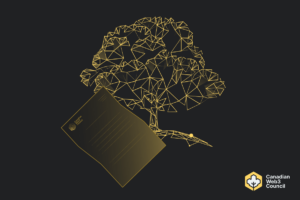On August 1, 2023, CW3 responded to the Government of Canada’s Consultation on Strengthening Canada’s Anti-Money Laundering and Anti-Terrorist Financing Regime. Check out our full submission.
CW3 and its members understand the importance of strengthening Canada’s Anti-Money Laundering (AML) and Anti-Terrorist Financing (ATF) regime. As web3 technology becomes more mainstream and there is greater adoption by Canadians, AML, ATF as well as fraud prevention and financial crime disincentives are critical to the legitimacy and growth of this industry.
In our submission, we encourage Canada to use its global leadership role to be strategic and evidence based when effecting change to rulemaking. Our members welcome the opportunity to engage with the government and agencies to develop specific proposals that can both strengthen the current AML/ATF framework and which are tailored to fit the crypto sector.
Highlights from our submission:
- Canadian regulatory and law enforcement agencies need to work with the web3 industry in Canada to better understand web3 technologies, and create flexibility in any amendments to the PCMLTFA/R to allow for industry developments and innovation.
- Address the broad-brush approach to de-risking in Canada, which has negatively impacted Virtual Asset Service Providers (VASPs), hinders innovation, competition, and financial inclusion, and often fails to distinguish between well-governed VASPs with robust AML/CTF measures and those lacking such safeguards. A more nuanced risk assessment by Financial Institutions, informed by empirical studies, can pave the way for an effective and balanced risk management framework.
- Evidence-based policymaking and industry consultation for evolving sectors, such as decentralised finance (DeFi) and non-fungible tokens (NFTs), before deciding on an AML/ATF regulatory framework for these sectors to ensure an AML/ATF regulatory framework that is proportional to risks, considers the variety of use cases, and supports effective enforcement.
- We believe the unique characteristics of blockchain technology (i.e. transparency) together with enhanced data analytics tools and insights provide an opportunity for industry, regulators and law enforcement to enhance their approach to supervision and investigation.
- We favour minimising complexity to reduce regulatory burden. Regulatory burden creates barriers to entry, impedes innovation and reduces productivity (especially for small and medium enterprises (SMEs)).
- We support the use of a regulatory sandbox to test new technologies or systems that might
support open-banking and other payment systems. Supporting innovation may encourage development of regtech and fintech solutions that enhance transaction and identity monitoring for AML/ATF activities.
In our submission, we also ask the Canadian Government to recognize that the VASPs and the web3 industry can be an alternative to traditional financial markets currently dominated by large incumbents. We ask that the Canadian Government also use its leadership position to influence policy on the international stage. CW3 and the Canadian web3 ecosystem can provide the government and agencies with a better understanding of the technology and its use cases and its intersections with global payment systems. This knowledge can help Canada be strategic in taking a leadership role on international committees (BIS, IOSCO etc.) to create a global AML/ATF framework in a manner suitable for a modern global financial, capital and crypto markets. The above is a snapshot of our response. See our full response here.1 De-risking refers to the practice of Financial Institutions mitigating potential legal, financial, or regulatory risks by limiting services to sectors that are considered high-risk.



